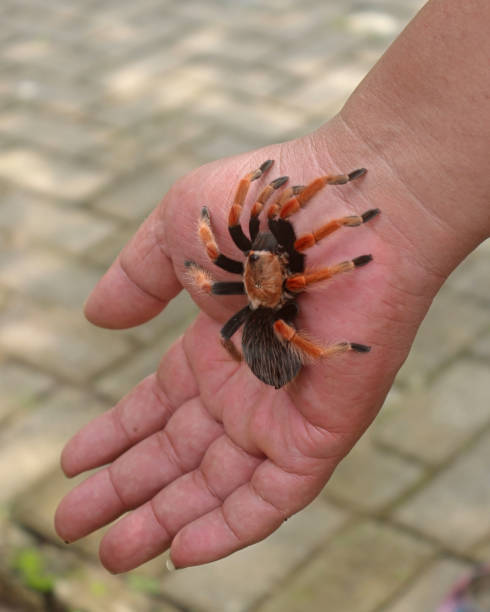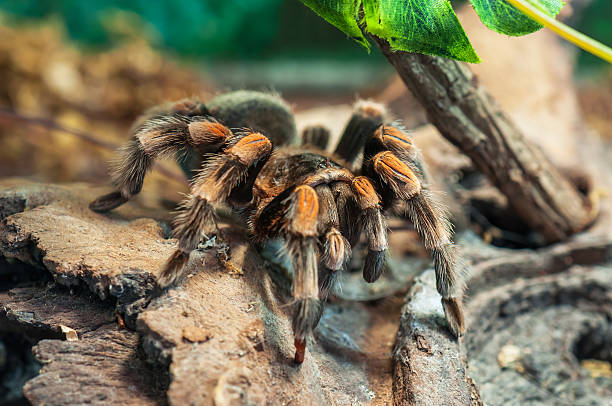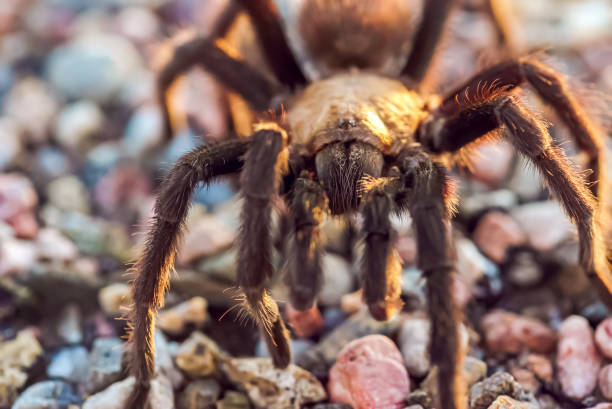Terror in the air: tarantula bites pilot allergic to spiders in flight to Madrid

Just like in a science fiction movie, this was the harrowing moment that an air crew had to face during a flight to Madrid, Spain.
International media have reported on the incident suffered by the pilot of an Airbus A320, of the Iberia airline, operating between Düsseldorf, Germany and Madrid.

The flight landed without any major problems. Photo: iStock
The distressing scene was caused by a tarantula that snuck into the aircraft and bit the captain ; however, the worst came later, because the commander immediately informed his crew that he had a strong allergy to spiders.
The airline reported that the man is fine and out of danger. They also indicated that the pilot, whose identity is unknown, had to be treated by the crew, who gave him a corticosteroid from the plane's first aid kit to prevent him from suffering an allergic reaction.
Despite the emergency, the flight ended without any major problems, as the air crew acted in time and ensured that the flight completed its journey without any problems.

The flight landed without any major problems. Photo: iStock
Spanish media reports say the passengers were unaware of what had happened during the flight and were not informed of the events until they landed at Madrid's Barajas airport .
Iberia Airlines said that after landing and after the departure of all passengers and crew , the plane was fumigated after the disinfection protocol was activated, which is why the next flight was delayed by three hours.
Although no further details are known about what happened, it is believed that the spider may have entered the aircraft after a stopover in Morocco.

The flight landed without any major problems. Photo: iStock
According to the Mayo Clinic on its website, most spider bites generally cause minor injuries, but there are some cases where the situation can become serious and require specialized care.
- Bite from a dangerous spider, such as a black widow or brown recluse.
- Not being sure what species of spider bit you.
- They experience severe pain, abdominal cramps, or a growing wound at the site of the bite.
- Having trouble breathing or swallowing.
- The area of swollen skin spreads or becomes lined.
The medical center also specifies that when suffering from a spider bite, the correct course of action is as follows:
- Clean the wound with mild soap and water. Then, apply antibiotic ointment three times a day to help prevent infection.
- Every hour, apply a cold cloth to the bite for 15 minutes. Use a clean cloth moistened with water or filled with ice. This helps reduce pain and swelling.
- If possible, elevate the affected area.
- Take some over-the-counter pain relievers as needed.
- If the wound is itchy, taking an antihistamine, such as diphenhydramine or cetirizine, may help. Or try applying calamine lotion or a steroid cream.
For muscle spasms and pain, your health care professional may prescribe pain relievers, muscle relaxants, or both. You may also need a tetanus shot.
ALEJANDRA HERNANDEZ TORRES
DIGITAL REACH EDITORIAL
More news in EL TIEMPOeltiempo






